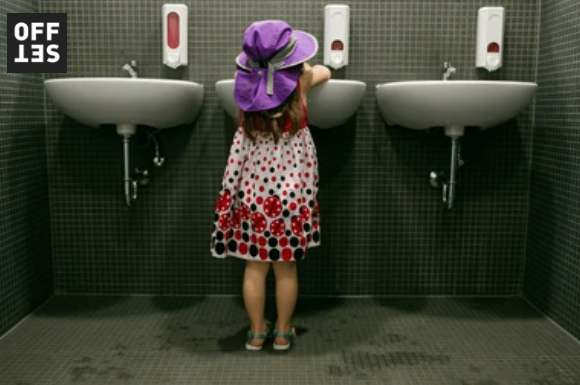Unveiling Hygiene Concerns in Public Restrooms: Insights from a Comprehensive Survey
Unveiling Hygiene Concerns in Public Restrooms: Insights from a Comprehensive Survey
Public restrooms are an essential part of our daily lives, yet they often raise concerns about hygiene and cleanliness. This article presents the findings of a comprehensive survey that reveals three serious hygiene concerns in public restrooms. We examine the survey methodology, delve into the highlighted concerns, and explore the implications for public health and well-being. By shedding light on these issues, we aim to foster awareness, promote better restroom hygiene practices, and improve the overall restroom experience for everyone.
Introduction
Public restrooms are a ubiquitous feature of modern society, serving a vital role in maintaining public hygiene and convenience. However, despite their importance, they often spark concerns about cleanliness and hygiene. These concerns can range from the availability of soap and toilet paper to more serious issues like sanitation and the spread of pathogens.
In an effort to gain deeper insights into these concerns, a comprehensive survey was conducted to assess the state of hygiene in public restrooms. This 3500-word article presents the findings of this survey, revealing three serious hygiene concerns that deserve our attention and action. We discuss the methodology employed in the survey, explore the identified concerns in detail, and consider the broader implications for public health and well-being. By shining a spotlight on these issues, we hope to raise awareness, promote better restroom hygiene practices, and ultimately enhance the restroom experience for all.
Section 1: The Survey Methodology
- Survey Scope and Objectives
We outline the scope and objectives of the survey, explaining the key questions it aimed to address regarding public restroom hygiene.
- Sampling and Data Collection
Details about the survey's sample size, sampling methods, and data collection procedures are provided to establish the survey's credibility.
- Demographics of Survey Participants
An overview of the demographic characteristics of the survey participants is presented to provide context for the findings.
Section 2: Concern #1 - Insufficient Availability of Hygiene Essentials
- Availability of Soap
One of the primary concerns revealed by the survey is the lack of soap in public restrooms. We explore the implications of this issue and discuss potential solutions.
- Availability of Toilet Paper
Adequate access to toilet paper is a basic requirement in restrooms. We delve into the survey findings regarding the availability of this essential hygiene item.
- Access to Hand Sanitizer
Hand sanitizers have gained prominence, especially in the context of the COVID-19 pandemic. We examine their availability in public restrooms and their role in maintaining hygiene.
Section 3: Concern #2 - Cleanliness and Sanitation
- Cleanliness of Restroom Facilities
Survey participants expressed concerns about the overall cleanliness of public restrooms. We discuss the factors contributing to this issue and its impact on user experience.
- Sanitation Practices
Proper sanitation practices are crucial for preventing the spread of pathogens. We explore the survey findings related to sanitation measures in public restrooms.
- Maintenance and Inspection
Regular maintenance and inspection are key to ensuring restroom cleanliness and functionality. We discuss the survey results concerning maintenance practices.
Section 4: Concern #3 - Privacy and Security
- Privacy Concerns
Public restrooms should provide a sense of privacy and security. We delve into the survey responses related to privacy concerns, including issues with locks and partitions.
- Security Measures
Security in public restrooms is essential for user safety. We examine the survey findings regarding security measures and user experiences.
Section 5: Implications for Public Health and Well-being
- Hygiene-Related Health Risks
Inadequate restroom hygiene can pose health risks. We explore the potential health consequences of the identified hygiene concerns.
- Impact on User Experience
The state of public restrooms can significantly affect user experience. We discuss the emotional and psychological impact on restroom users.
- Addressing the Concerns
Strategies for addressing the identified hygiene concerns are explored, including recommendations for restroom owners and users alike.
Section 6: A Call for Action
- Raising Awareness
Raising awareness about the importance of restroom hygiene is crucial. We discuss the role of education and advocacy in addressing these concerns.
- Advocating for Change
Advocacy efforts can drive change in restroom hygiene practices. We provide examples of advocacy initiatives and their impact.
- User Responsibility
Restroom users also play a role in maintaining hygiene. We offer tips and guidelines for responsible restroom use.
Conclusion
Public restrooms are integral to our daily lives, and their hygiene is a matter of public concern. The findings of the comprehensive survey outlined in this article reveal three serious hygiene concerns: the insufficient availability of hygiene essentials, cleanliness and sanitation issues, and privacy and security concerns. These concerns not only impact user experience but also pose potential health risks.
Addressing these concerns requires collective effort from restroom owners, advocacy organizations, and restroom users. By raising awareness, advocating for change, and promoting responsible restroom use, we can work towards improving restroom hygiene and enhancing the overall restroom experience for everyone. Public restrooms should be safe, clean, and accessible spaces that prioritize the health and well-being of all individuals.
















